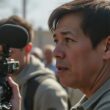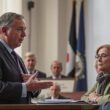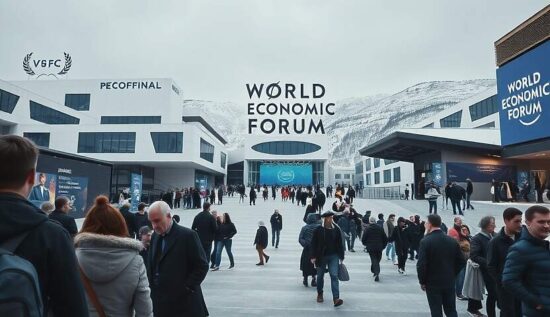In the picturesque mountain landscape of Graubünden, the 55th World Economic Forum (WEF) is starting today. From January 20 to 24, government representatives, CEOs, and envoys of international organizations will gather to discuss pressing global challenges. Geopolitical tensions, particularly the conflicts in Ukraine and the Middle East, will be at the forefront of the discussions this year as well.
The 2025 World Economic Forum is themed “Collaboration in the Intelligent Age” and will focus on five central topics. The restoration of trust is a key issue, as the international community seeks to strengthen cooperation in the face of global crises and increasing protectionism.
The agenda will also explore how sustainable growth can be rethought in a changing world, with panels on financial systems, trade, and innovations. The technological progress, particularly artificial intelligence, demands new skills and an adaptation of education systems, which will be discussed under the motto “Invest in People.” Sustainability remains a core concern, with a focus on the energy transition and the protection of natural resources to combat climate change. Finally, the forum will examine the transformation of entire industries, from AI infrastructure to the chip industry, and the strategic adaptations required by these disruptions.
Sixty state and government leaders, including Ukrainian President Volodymyr Zelensky, Argentine President Javier Milei, and German Chancellor Olaf Scholz, are expected in Davos. High-ranking representatives from the Middle East, such as Israeli President Isaac Herzog and Jordan’s Foreign Minister Ayman al-Safadi, will also attend.
A notable absentee is the designated US President Donald Trump, who will be sworn in on Monday in Washington. However, Trump is expected to participate via video and may inject some excitement into the discussions with his proposals, such as threatened tariffs.
Switzerland is represented by six federal councilors, including Karin Keller-Sutter and Ignazio Cassis.
The WEF poses immense security challenges, with around 5,000 military personnel deployed, the airspace over Davos closed since January 17, and security costs of nine million francs, borne by the federal government, the canton, and the municipality of Davos.
Private jets are landing at Zurich Kloten Airport, with hundreds of flights bringing international guests to Davos, where some will opt for limousine rides instead of the train, a contradiction to the proclaimed climate neutrality.
Founded in 1971 by Klaus Schwab, the WEF has developed over the years into the most significant platform for global cooperation. Schwab, now 87, is gradually stepping back, with the operational leadership of the forum already transferred to four committees. However, Schwab will remain the president of the foundation council.
Although the WEF is globally respected for its networks, it also faces criticism. Annual protests, such as yesterday’s demonstration in Davos, show the discontent of many over the dominance of the elite and the influence of global corporations.
The WEF remains a reflection of our time: it brings together hopes for cooperation and the challenge of uniting a fragmented world. Whether this year’s debates will produce concrete results remains to be seen – but one thing is certain: Davos will remain the place where the course is set for global trends.





